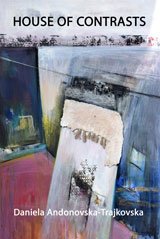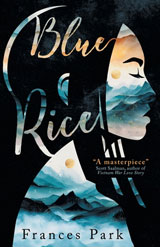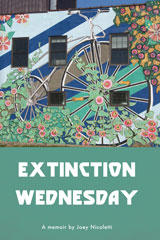|
July, 2005
Aug. 2005
Sept. 2005
Oct. 2005
Nov. 2005
Dec. 2005
Jan. 2006
Feb. 2006
Mar. 2006
Apr. 2006
May 2006
June 2006
July 2006
August 2006
September 2006
October 2006
November 2006
December 2006
January 2007
February 2007
March 2007
April 2007
May 2007
June 2007
July 2007
August 2007
September 2007
October 2007
November 2007
December 2007
February 2008
March 2008
April 2008
May 2008
June 2008
July 2008
August 2008
September 2008
October 2008
November 2008
December 2008
February 2009
March 2009
April 2009
May 2009
July 2009
August 2009
September 2009
November 2009
December 2009
January 2010
February 2010
March 2010
April 2010
May 2010
June 2010
July 2010
September 2010
October 2010
November 2010
December 2010
January 2011
February 2011
March 2011
April 2011
May 2011
June 2011
July 2011
September 2011
October 2011
December 2011
February 2012
April 2012
June 2012
July 2012
August 2012
October 2012
November 2012
February 2013
May 2013
July 2013
August 2013
October 2013
November 2013
April 2014
July 2014
October 2014
March 2015
May 2015
September 2015
October 2015
November 2015
August 2016
March 2017
January 2019
May 2019
August 2019
March 2020
April 2020
May 2020
July 2020
October 2020
January 2021
February 2021
August 2021
January 2022
February 2022
April 2022
June 2022
August 2022
September 2022
December 2022
February 2023
April 2023
August 2023
February 2024
March 2024
May 2024
ČERVENÁ BARVA PRESS NEWSLETTER
Gloria Mindock, Editor Issue No. 119 August, 2024
INDEX
Welcome to the Červená Barva Press August Newsletter, 2024
Hi Everyone-
A big change for our monthly newsletter. It will now only be posted on the following months:
August, Sept., October, November, December, March, April, and May. There will be no newsletter for June, July,
January, and February. If we have any announcements that should be shared, it will be in a regular email.
We published 2 new books From Macedonia. I absolutely love these books.

WINDOW OF BABEL
by Borche Panov
Translated from the Macedonian
by Daniela Andonovska-Trajkovska
|

HOUSE OF CONTRASTS
by Daniela Andonovska-Trajkovska
|
I hope you are doing the Sealey challenge this month. I am. I have so many poetry books to read, This will be great.
I am happy this is done every August.
Reading a poetry book a day will help me catch up on my reading.


I don't think I will ever forget your character Hanhee (Honey). Was she influenced by someone you met along life's highway?
Although my heroine is fictional, the novel would've never been penned if not for a very petite Korean woman named Mrs. S.
whom I met in the fifth grade when I was tutoring her son. I only vaguely recall the son and our study time, and
nothing about her white Army husband. But how could I forget Mrs. S? Unlike the Korean moms I'd met in post-war
Seoul, Mrs. S. with her sweet thick accent in the American burbs was vivacious, girlishly singing and dancing while
doing her chores, trotting me into her kitchen with the offer of endless treats. Her spirit and open-armed affection
stayed with me long after my family moved away. Decades later, I learned from my mom that Mrs. S. was illiterate and
had worked in a brothel in post-war Korea. Somehow, I could see that.
In hindsight, Mrs. S. was either grateful to be alive or making the best of what war did to her and millions of others. Or both.
The first chapter A Monsoon Song is set in a Korean brothel.
This was an edgy choice but absolutely essential to what transpires in the book.
Yes, and as I mention in the novel, writing Blue Rice was like living a dream from scenes my late mother
shared with me. One day, she was telling me about how, soon after she married, she spotted a line of American
GIs outside a door in Seoul. Naively, she asked her driver about why they were gathered there. His response
was something along the lines of "Oh, you are too innocent to know about such things." Later, she gathered
the truth.
Without bringing in the character of Joe, do you think Hanhee would have been forever subjugated to live this demeaning
existence, due to the disastrous aftermath of the Korean War?
The optimistic me likes to think that my heroine had the soul, ingenuity and spunk - not to mention a bit of luck - to
find a way out. The realistic me wonders.
What influenced your decision to bring in the character of Kissuni who was Hanhee's best friend in South Korea?
Thanks for asking about Kissuni. For a little background, I've used the name "Kissuni" in three different books - my
memoir That Lonely Spell (Heliotrope Books), my co-authored children's book Good-bye, 382 Shin Dang Dong
(National Geographic Books), and in Blue Rice. None of the characters bear any resemblance, but it's my
homage to a poor Korean maid who watched over me one summer during a visit to Seoul when I was a child.
Like Mrs S., she has stayed with me my entire life. Of the three works, only the memoir captures the true Kissuni.
I still get choked up thinking about when we said good-bye and fearing what the future held for her.
In Blue Rice, as in my life, I believe it's important to find at least one profound best friend in life.
My heroine has two - one in South Korea, one in America. Both will help chart her life, even long after
they're gone. In Kissuni's case, even after her death, she remains in Hanhee/Honey's life in an ethereal
form. It's up to the reader to conclude whether these scenes are dreams or reality.
Did you know in advance that there would be a big switch in locale?
Yes. Again, the move to America was fated in Blue Rice and perhaps in my mother's life. Similarly to the novel,
she was told by a starving and strange Buddhist monk who knocked on her door that she would come to America. I'm
not certain what year this was but I do know that leaving South Korea was not on her radar - yet the monk's
prediction was correct.
If it weren't for Mrs. Church, do you think Hanhee would have broken down?
No, I believe she would have survived and found a way to thrive. I just do.
Again, in creating Emma Church's character, my mother inadvertently provided me with rich material. Early on,
my parents had to temporarily live in a Harvard Square rooming house/hotel of sorts before their apartment in
Brighton was ready. One day, my mom was coming up the stairs when just then, a door opened - there stood an elderly
lady needing her help to open a jar. The two became friends and I understand she was a kindly widow whose only
(occasional) visitor was a son. Once I heard this story, Mrs. Church was born.
In closing, I wanted your readers to know that Blue Rice is dedicated "To all the lives lost and souls
shattered during the Korean War, and to my late mother who lived and breathed it as she carried on in
America, humming Korean songs."
Thank you.

Extinction Wednesday: A Memoir by Joey Nicoletti
Bordighera Press, 2024

If you are expecting a traditional memoir that goes into a great deal over major points in the author's life,
you will not find it in this book. Instead, Joey Nicoletti has taken an often fractured childhood, telling it
from the close POV of himself as a boy, thus showing what clever boys will do to escape trauma. This boy
escaped into movies and comics, and scenes of the family interactions are sometimes set in a movie house.
Take the chapter GONNA CRY NOW which is a lighter moment and begins:
"There is no frustration like a dissatisfying ending to a movie with an Italian American Protagonist. Such was the
case for my Grandfather Joe and my father, with whom I saw the first Rocky when I was a child...
Seeing Rocky is one of my most memorable movie-theatre experiences, in large part due to Grandfather Joe's reaction
to the ending, when Apollo Creed wins his boxing match over the underdog unknown club fighter from South Philadelphia,
Rocky Balboa, and retains his title as the Heavyweight Champion of the World in a split decision...
Grandfather Joe was outraged. He did not agree with the movie's turn of events. "Son of a bitch,
they screwed the Italians again," he shouted, as he threw a half-full paper bucket of popcorn and
large soda at the screen."
Nicoletti grew up in the swinging 70's which wasn't an easy time for the country or for anyone, really.
His parents were working class people who provided as best they could for their family, yet found themselves,
especially his mother, pulled into the counter-culture allure of rock music and weed. I believe the kids of
that era were confused by this culture split-away from their earlier more conservative childhoods.
The Vietnam War flooded the TV screens, and Civil Rights was on the march. It was a lot of violence
and bled into the kids.
From the chapter Wine and Shine:
"Years would pass before I read The Shining... Movies like The Shining are emotional touchstones... takes me back to
Beefsteak Charlie's. Eating my weight in shrimp and salad puts my parents' enjoyment of endless pitchers of Sangria
in perspective. Recalling their intoxication that night still gives me pause, but it also makes me see them as
human beings; as young adults having fun, grateful for the opportunity to live in the moment; not preoccupied
with confrontations, finances, or report cards."
I grew up a little before the author, in the same neighborhood on Long Island, and knew the same diners and high
schools, pizza parlors and all the rest that he frequented. I was intrigued by his take on place, those very same
streets I stomped. Especially L Street, where the geese came out each morning to terrorize the kids on their
way to the school bus.
This unique memoir is told expansively with great heart.
Available from Amazon (and other online vendors):
https://www.amazon.com/Books-Joey-Nicoletti/s?rh=n%3A283155%2Cp_27%3AJoey+Nicoletti

DISPATCH FROM THE FRONT:
A Ford Mustang, Cary Grant, Vietnam, and Navalny
A Review of some writings by Susan Isla Tepper & A love message to America
By Svet DiNahum
I am from Eastern Europe. I graduated in the USA. Sometimes I am idolizing America. And the fiction and poetry
by Susan Isla Tepper make me continue idolizing America. Because such authors' passion toward the suffering of
other nations is the same compassion that brought heroes like Gloria Mindock's Dad to Europe to fight the Nazis.
It is the same compassion that made Susan write her beautiful poem:
Disinclined (in Memory of Alexei Navalny):
The boy lit a match and studied the world.
No small side gardens
blooming, nor did he find
fences rough or refined
cascading colorful wildflowers
up from the lanes.
He didn't see the soft houses
with fresh paint and
savory smells
out of kitchen windows.
He did not bear witness to
bombed or burned blocs
where the walls teetered.
Or even any that might
still be standing
at this particular time.
The boy saw a world succumbed.
Masses of clear high glass
glistened out, only out.
People were
wearing the best
and sashayed here and there.
The boy saw how
they'd be disinclined
to offer him a sip.
Out of their spigots of silver and gold.
In her stories Me & Mr. Grant (published in Peacock Journal) and Air Over Hanoi (GARGOYLE Magazine), describing memories
of Newark Airport and TWA days, meeting Cary Grant, traveling with American soldiers to Vietnam, we see a young girl,
a young American, searching for her place in the sun. I personally also see the image of the American nation searching
for itself and finding itself through self-realization in life, through the impulse of youth and through the belief that
even the horizon is no limit.
Susan Isla's prose stands out among contemporary literature in three particular ways: the author uses vivid and immediate
language, communicating directly with the reader; every described incident from reality is visualized in the here and
now, the characters come to life, and the described era seems to have never left America; and last but not least,
Susan Isla's works are completely cinematic, straight up ready for feature film scripts.
I am especially excited writing this review because as I mentioned in the beginning I am from Eastern Europe. I grew
up with American movies from exactly the era described by Susan. For us, America was a magic on the map - an
inaccessible and distant magic that we touched only through literature and cinema. And I can confidently say that
Susan is a talented perpetuator of that inspiring American tradition that has given us in the rest of the world hope,
positivity, faith, freedom, and much, much joy.
I recently saw on a social network a photo of Susan from her teenage years - a young American woman in a Ford Mustang
by the ocean. I wrote her that for me the Ford Mustang has always been the symbol of America. Susan jokingly
replied that she had no idea about that and if she had known, she would have sold me that old Mustang of hers
for $10 - i.e. given it to me. I see in this communication a joy of life that we in Eastern Europe often lack,
especially today, in the conditions of a new war.
I am grateful to Susan for the virtual Mustang, and most of all for her gift of prose. Her works can be defined
as sexy, immediate, playful, and multi-layered. And for me, her literature is a message from the good America to
the world as well as to modern America. Right now it needs messages of memory and dignity.
Today in America, the writers Susan Isla Tepper and Gloria Mindock support Ukraine. Thank you, Susan and Glo!
You keep America great, not those in DC. Susan, I still need your Ford Mustang. It is my symbol of America.
You two friends, with your literary work, are my America. I know you will not let me down. We all are in
that Mustang. We all believe in it. Because an American girl's hair continues to wave over that Mustang,
calling for freedom.

See you next month
Gloria

Červená Barva Press Staff
Gloria Mindock, Editor & Publisher
Renuka Raghavan, Assistant Editor, Publicity
Flavia Cosma, International Editor
Helene Cardona, Contributing Editor
Andrey Gritsman, Contributing Editor
Juri Talvet, Contributing Editor
John Wisniewski, Interviewer
Miriam O' Neal, Poetry Reviewer
Annie Pluto, Poetry Reviewer
Christopher Reilley, Poetry Reviewer
Susan Tepper, Poetry Reviewer
John Riley, Poetry and Fiction Reviewer
William J. Kelle: Webmaster
Gene Barry (In Memoriam)
Karen Friedland (In Memoriam
Former Staff:
Neil Leadbeater
See you next month!


If you would like to be added to my monthly e-mail newsletter, which gives information on readings,
book signings, contests, workshops, and other related topics...
To subscribe to the newsletter send an email to:
newsletter@cervenabarvapress.com
with "newsletter" or "subscribe" in the subject line.
To unsubscribe from the newsletter send an email to:
unsubscribenewsletter@cervenabarvapress.com
with "unsubscribe" in the subject line.

Index |
Bookstore |
Our Staff |
Image Gallery |
Submissions |
Newsletter |
Readings |
Interviews |
Book Reviews |
Workshops |
Fundraising |
Contact |
Links
Copyright @ 2005-2024 ČERVENÁ BARVA PRESS - All
Rights Reserved
|

